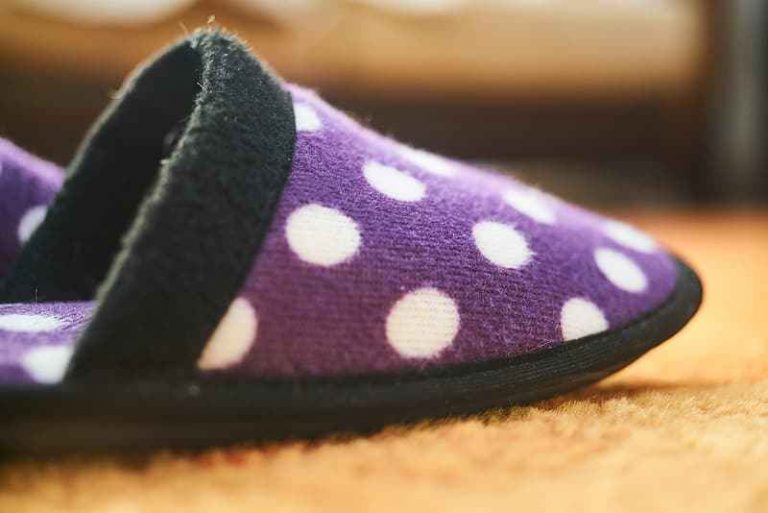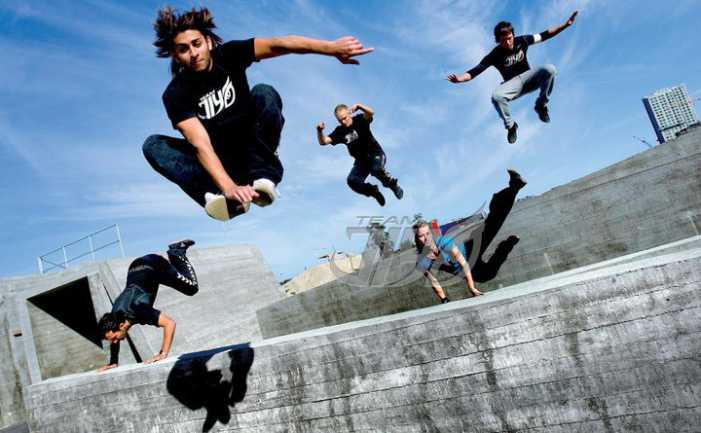The 10 Best Athletic Shoes for Hammer Toes – Comfort Meets Performance
Choosing the right athletic shoes is crucial for everyone, but it becomes especially important for individuals dealing with hammer toes. Hammer toes, a deformity where the toe bends at the middle joint, can cause significant discomfort and pain, particularly when wearing ill-fitting footwear. Selecting the appropriate shoes can help in alleviating pain, preventing further deformity, and enhancing overall foot health.
Moreover, the right shoes can significantly improve athletic performance by providing the necessary support and stability, allowing individuals to engage in activities with greater comfort and reduced risk of injury. In this article, we will explore the best athletic shoes suited for those with hammer toes, ensuring that you can make an informed purchase that prioritizes both health and functionality.
Top 10 Shoe Reviews for Hammer Toes
Table of Contents
Toggle1. New Balance 928v3
The New Balance 928v3 stands out as an excellent athletic shoe for individuals with hammer toes. Designed with a focus on stability and cushioning, this shoe features a roomy toe box that comfortably accommodates foot deformities. The leather upper provides both durability and a pliable fit, reducing pressure points. ROLLBAR technology enhances stability, which is crucial for those needing additional foot support.
The ABZORB midsole offers superior cushioning, absorbing shock with each step, and the shoe’s overall design prioritizes foot health without compromising on aesthetic appeal.
Pros:
- Wide, deep toe box for ample space
- Excellent arch support with ROLLBAR technology
- Durable leather upper
- ABZORB cushioning for comfort
- Approved for diabetic patients
Cons:
- Heavier than some other athletic shoes
- Limited color options
- Price may be high for some budgets
2. Brooks Dyad 11
Brooks Dyad 11 is a favorite among athletes with hammer toes due to its generous fit and exceptional support. The shoe features a dual-arch pod system that helps stabilize the foot, a critical factor for those with toe deformities. Its mesh upper is breathable, keeping the feet cool during long workouts.
The shoe’s cushioning is responsive, thanks to the BioMoGo DNA midsole technology, which adapts to your stride. Additionally, the Dyad 11 is orthotic-friendly, allowing users to insert custom orthotics if needed, enhancing its appeal to those requiring specialized foot care.
Pros:
- Very roomy in the toe area
- Breathable mesh upper
- Orthotic-friendly design
- Responsive cushioning with BioMoGo DNA
- Suitable for multiple foot issues
Cons:
- Somewhat bulky design
- Limited style and color options
- May feel too stiff for some users
3. Altra Escalante 2.5
Altra Escalante 2.5 excels in providing a natural foot placement, thanks to its FootShape toe box which allows toes to splay naturally and comfortably. The shoe’s zero-drop platform promotes a more natural alignment of the foot, which can be particularly beneficial for those with hammer toes.
The Altra EGO midsole offers a soft, responsive ride, making it perfect for both running and cross-training activities. The knit upper not only provides comfort but also flexibility, adapting to the shape of the foot without restricting movement.
Pros:
- FootShape toe box for natural toe spread
- Zero-drop design for natural foot alignment
- Responsive Altra EGO midsole
- Flexible knit upper
- Lightweight and stylish
Cons:
- Less arch support compared to others
- Durability concerns with the knit upper
- May not be suitable for severe overpronators
4. Orthofeet Sprint Comfort
Orthofeet Sprint Comfort is specifically engineered with foot health in mind, making it a top choice for those with hammer toes. The shoe features an anatomical orthotic insole and ergonomic sole that provide precise support and cushioning. The soft, non-binding upper is designed to eliminate pressure points, while the extra depth and a wide toe box ensure a pressure-free fit.
It’s also equipped with a seam-free interior, which is ideal for sensitive feet or those with diabetes. This shoe combines practical functionality with therapeutic qualities, making it a solid choice for everyday wear.
Pros:
- Anatomical orthotic insoles
- Ergonomic, cushioned sole
- Non-binding upper to reduce pressure points
- Extra depth and wide toe box for comfort
- Seam-free interior for sensitive feet
Cons:
- Aesthetic might not appeal to all
- Higher price point
- May lack sufficient ventilation
5. Skechers Arch Fit – Banlin
Skechers Arch Fit – Banlin is a versatile shoe that offers substantial arch support and a comfortable fit for those with hammer toes. The patented Arch Fit insole system provides podiatrist-certified arch support, which is crucial for alleviating pressure on deformed toes. Its breathable mesh upper keeps the feet cool and comfortable during physical activity.
The flexible outsole allows for an improved range of motion, while the overall design of the shoe supports the natural movement of the foot. This shoe proves that therapeutic features can be seamlessly integrated into a sporty, everyday shoe.
Pros:
- Podiatrist-certified arch support
- Breathable mesh upper
- Flexible outsole for better movement
- Comfortable and stylish design
- Good value for the price
Cons:
- May not suit very wide feet
- Limited color choices
- Cushioning may be inadequate for high-impact sports
6. ASICS Gel-Venture 7
ASICS Gel-Venture 7 is specifically designed to provide comfort and protection for those with hammer toes during high-impact activities. The rearfoot GEL technology cushions each step, important for reducing strain on the toes. Its orthotic-friendly design allows for custom inserts, which can be crucial for individual fit needs.
The rugged outsole provides excellent traction on various surfaces, making it ideal for outdoor activities. The mesh upper is breathable, maintaining foot comfort and health during prolonged wear.
Pros:
- Rearfoot GEL technology for shock absorption
- Orthotic-friendly for customizable support
- Durable outsole with great traction
- Breathable mesh upper
- Versatile for various outdoor activities
Cons:
- May run small, requiring sizing up
- The design may feel too rigid for some
- Limited color options available
7. Merrell Moab 2 Ventilator
The Merrell Moab 2 Ventilator excels in outdoor environments, providing excellent support and comfort for those with hammer toes. Its spacious toe box and supportive footbed ensure that pressure on the toes is minimized while maintaining stability and alignment. The suede leather and mesh upper offer durability and breathability, respectively.
The Vibram outsole enhances grip and durability in rugged conditions. The Moab 2 Ventilator is praised for its protective toe cap which is a boon for toe safety during hikes.
Pros:
- Spacious toe box for comfort
- Vibram outsole for superior traction
- Durable and breathable upper
- Protective toe cap
- Supportive footbed for stability
Cons:
- Might be heavy for some users
- Takes time to break in
- Not waterproof
8. Saucony Echelon 8
Saucony Echelon 8 offers a balanced and supportive fit, making it a top choice for runners with hammer toes. The wide platform and plush cushioning provide a stable base, reducing pressure on malformed toes. It features a FORMFIT system that contours to the foot, enhancing comfort and support.
The upper is designed with a mesh fabric for excellent breathability. Additionally, its reflective elements ensure safety during low-light conditions, making this shoe both functional and safe for all times of day.
Pros:
- Wide base for stability
- FORMFIT system for a snug fit
- Breathable mesh upper
- Reflective elements for safety
- Plush cushioning for comfort
Cons:
- May feel bulky to some runners
- Higher price point
- Limited color variations
9. Propet Stability Walker
Propet Stability Walker is engineered with features that cater to the needs of individuals with hammer toes. The roomy toe box and the option for adjustable widths accommodate various foot sizes and deformities. Its rocker sole helps reduce pressure on the toes by promoting a natural walking motion.
The shoe is constructed with a leather upper, ensuring durability, and it includes a rigid heel counter for added support. This model is a solid choice for those needing a dependable, everyday walking shoe.
Pros:
- Roomy toe box and adjustable widths
- Durable leather upper
- Rocker sole to minimize toe pressure
- Rigid heel counter for extra support
- Suitable for everyday use
Cons:
- Aesthetic might be too functional for some
- May be heavier than other walking shoes
- Limited breathability
10. Nike Air Zoom Pegasus 36
Nike Air Zoom Pegasus 36 offers a dynamic fit with a slim design that accommodates hammer toes without sacrificing style. It features Zoom Air units in the heel and forefoot for responsive cushioning, ideal for reducing impact during running. The Flymesh upper is extremely breathable, which helps keep the feet cool during intense activities.
The slimmer heel collar and tongue reduce bulk without compromising on comfort, making it sleek yet functional.
Pros:
- Zoom Air units for responsive cushioning
- Breathable Flymesh upper
- Sleek, modern design
- Lightweight and comfortable for long runs
- Slim heel collar and tongue reduce bulk
Cons:
- Narrow fit may not suit all foot types
- Durability issues in high-wear areas
- Pricier than some other options
Buyer’s Guide
When selecting the best athletic shoes for hammer toes, it’s essential to consider several key factors to ensure comfort, functionality, and durability. Here’s what to look for:
1. Wide Toe Box: The foremost feature to look for is a wide toe box. Shoes with a narrow toe area can press against the deformed toes, causing pain and exacerbating the condition. A wide toe box provides ample room, allowing the toes to spread naturally without constraint.
2. Soft Materials: The material of the shoe should be soft and flexible to accommodate the sensitive areas of the foot without causing friction or pressure. Materials like soft leather or advanced mesh fabrics that offer stretch and breathability are ideal.
3. Adjustable Fit: Shoes with adjustable features such as laces, Velcro, or straps can be extremely beneficial. These allow for customization of the fit, accommodating changes in foot size throughout the day due to swelling, which is common with hammer toes.
4. Padded Insoles: Look for shoes with thick, cushioned insoles or orthotics-friendly designs. These can reduce impact on the foot when engaging in sports and provide support to the arch, alleviating pressure off the toes.
5. Rigid & Rocker Soles: A sole that has a slight curve and is rigid to some extent can help in reducing the amount of flexion in the toe joints. This minimizes pain during movement and provides better control during athletic activities.
6. Breathability: Good ventilation helps in keeping the feet dry and cool, reducing the risk of blisters and other skin irritations. Mesh panels or perforated designs are excellent for enhancing airflow.
7. Durability: Since shoes for hammer toes need to provide specific support, ensuring they are well-made and durable is essential. Look for shoes with reinforced stitching, high-quality materials, and robust soles that can withstand the wear and tear of your specific activity.
Understanding these factors and how they contribute to the effectiveness and comfort of athletic footwear can significantly help in choosing the right pair. It’s also recommended to consult with a podiatrist to get tailored advice and possibly custom orthotics designed to support your specific foot condition.
FAQ
Q1: What type of closure is best for shoes when dealing with hammer toes?
For those with hammer toes, shoes with adjustable closures such as laces or hook-and-loop straps are ideal. They allow for easier adjustments throughout the day to accommodate swelling and provide a snug, yet comfortable fit that doesn’t put extra pressure on the toes.
Q2: Can I still wear running shoes if I have hammer toes?
Yes, you can wear running shoes, but it’s crucial to choose models that offer a wide toe box and flexible upper materials to accommodate and reduce pressure on the hammer toes.
Q3: How often should I replace my athletic shoes if I have hammer toes?
Replace your shoes regularly, typically every 300-500 miles of use, or as soon as you notice the support and cushioning beginning to degrade, to ensure continuous protection and comfort for your toes.
Q4: Are there specific brands known for making good shoes for hammer toes?
Brands like New Balance, Brooks, and Altra are known for their wide toe boxes and comfortable fit, making them suitable choices for individuals with hammer toes.
Q5: Is it necessary to wear orthotics in athletic shoes for hammer toes?
While not mandatory, orthotics can provide additional support and cushioning, particularly for those experiencing significant discomfort or pain. Custom orthotics designed to address your specific needs can be particularly beneficial.
Q6: What should I avoid in shoes if I have hammer toes?
Avoid shoes with high heels, narrow toe boxes, and non-adjustable designs. These can exacerbate the condition by forcing the toes into a cramped position.
Q7: Can shoes correct hammer toes?
While shoes alone cannot correct hammer toes, the right footwear can prevent progression, reduce pain, and provide the necessary support for better foot health and comfort during activities.
Conclusion
Selecting the right footwear is crucial for managing hammer toes, focusing on safety and functionality. Shoes with wide toe boxes, supportive cushioning, and adjustable fits ensure comfort and prevent further deformity. Choosing the appropriate shoes can greatly enhance performance and foot health, making daily activities and sports more enjoyable and pain-free.



